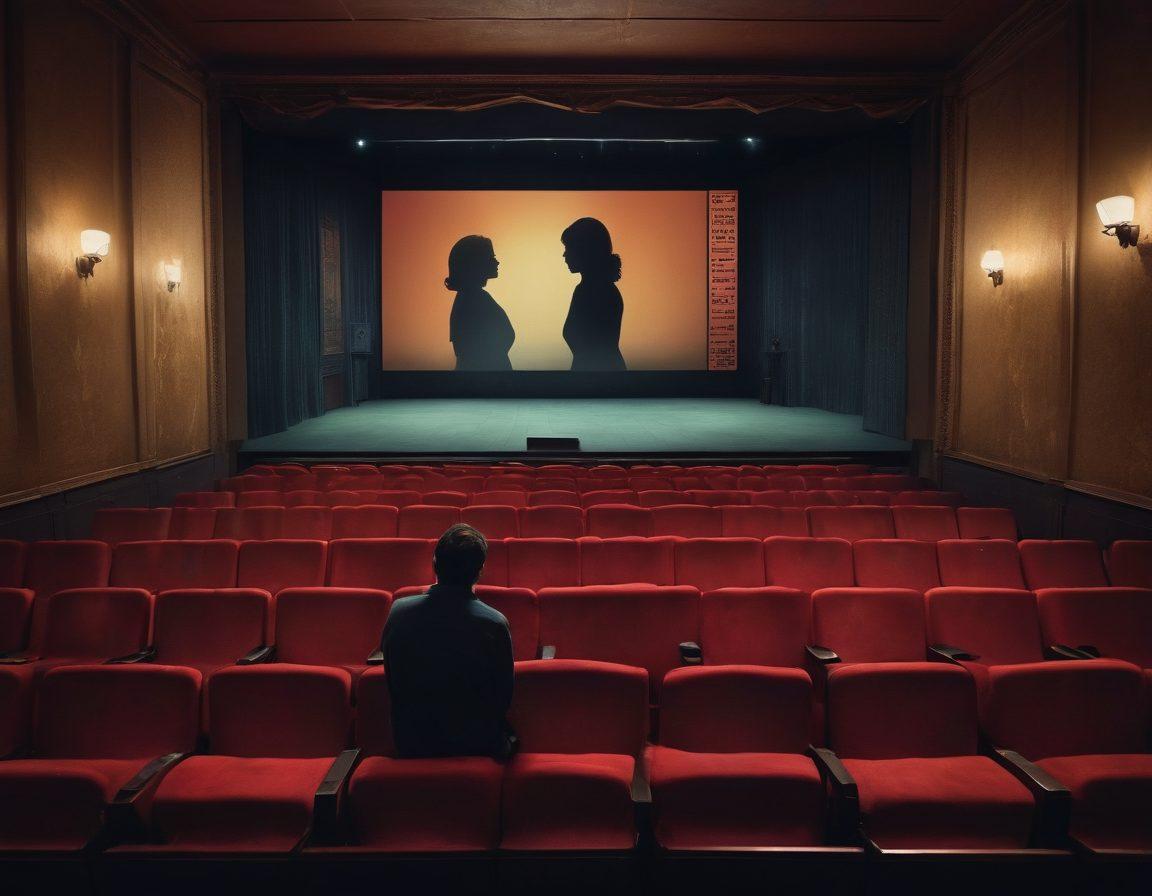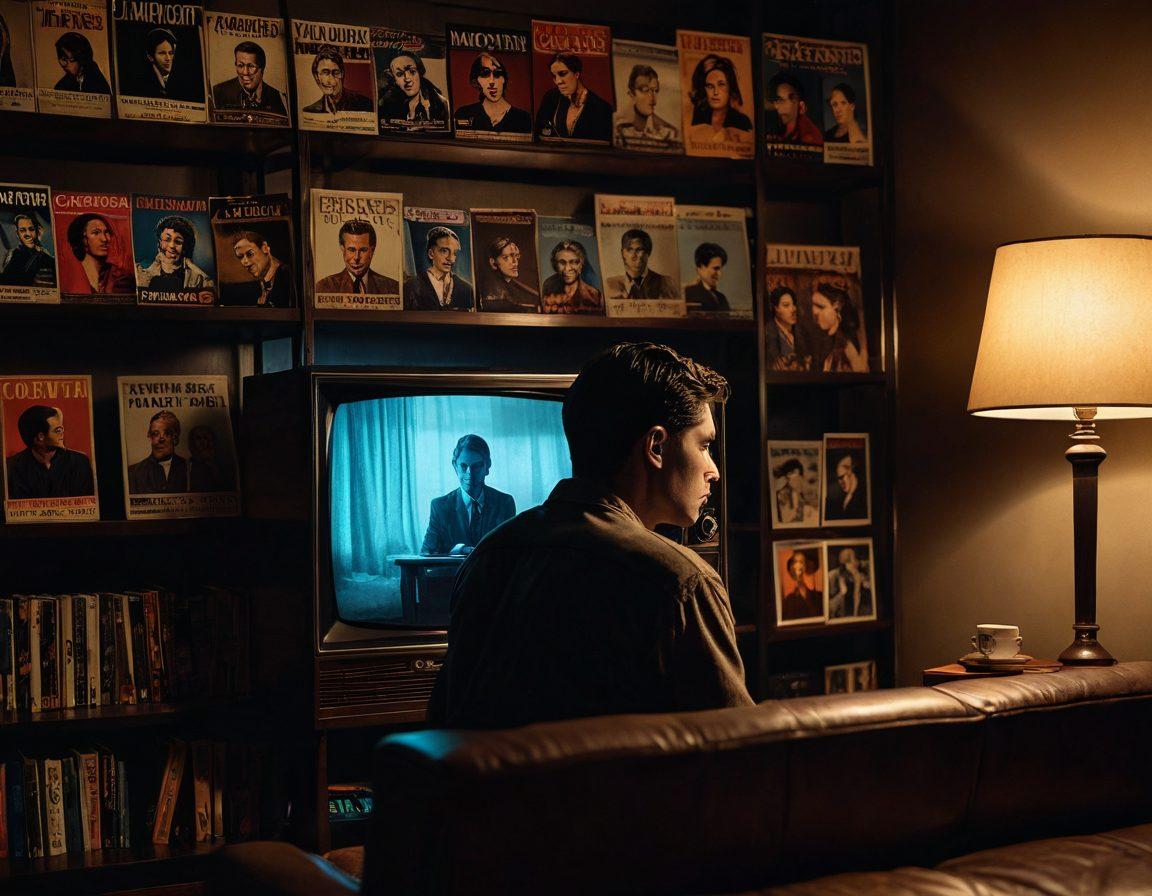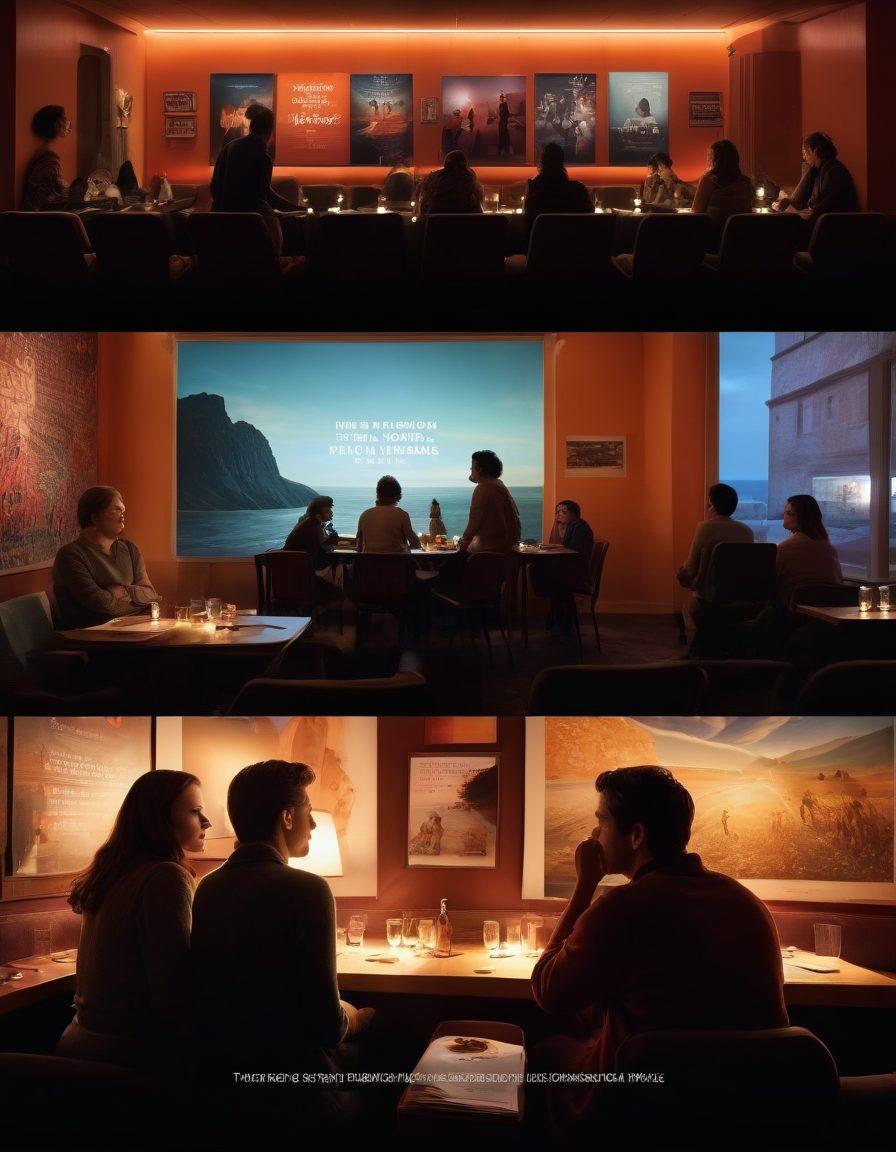Exploring the Depths of Sad Cinema: A Journey Through Heartfelt Films and Emotional Storytelling
Have you ever watched a movie that brought you to tears? A film that touched your heart, stirred emotions you didn’t even know you had? This is the beauty of sad cinema. Whether it’s a dramatic tale of loss or a subtle expression of sorrow, heartfelt films have a unique way of capturing the essence of human emotion. At the core of this genre lies the art-house and independent cinema that explores profound themes, leaving audiences with a lingering sense of reflection long after the credits roll. In this post, we will unveil some must-watch sad cinema classics that invite you to dive deeper into the poignant stories awaiting you.
One might wonder, why do we seek out sorrowful movies? Perhaps it stems from our desire to connect with our own feelings or to experience the catharsis that often follows an emotional release. According to Roger Ebert, a legendary film critic, "A movie is a machine that generates empathy." Indeed, when watching sad cinema, we allow ourselves to empathize with experiences outside our own, promoting understanding and connection. This film discussion forum around sad cinema unveils narratives where heartbreak and vulnerability take center stage, reminding us that it's okay to feel—and often, to feel deeply.
Among the classics, 'The Bicycle Thief' stands out as a beacon of Italian neo-realism. This film follows a desperate father's quest to recover his stolen bicycle, symbolizing the intersection of despair and hope. It invites conversation among cinema lovers and provides ample material for narrative analysis and film critique. When we explore such sorrowful movies, we gain insights into human struggles, as the characters often embody the very essence of our own life's battles. The compelling performances and heart-wrenching storylines resonate with many, sparking poignant discussions in movie communities around the world.
In the spirit of independent cinema, films like 'Manchester by the Sea' and 'A Ghost Story' beautifully encapsulate loss and the passage of time. They challenge traditional storytelling by weaving emotional storytelling into everyday experiences, fostering a deeper understanding of grief and acceptance. These cinematic experiences illustrate the idea that tragedy doesn’t always result in closure; rather, it can leave us grappling with questions about humanity and existence. For those who relish film evaluation, these movies provide rich layers of meaning, perfect for a thoughtful night of reflection with friends.
Lastly, as we navigate through these heartfelt films, let’s remember to share our thoughts and recommendations with fellow cinephiles. The beauty of film appreciation lies not just in watching, but in engaging with others who feel the same emotions we do. So, ask yourself this: what sad cinema classic has moved you the most? Perhaps it's time to revisit your favorites and join a film discussion forum where film lovers gather to reflect on these impactful stories that linger in our hearts. Remember, sadness is a beautiful emotion, and through these movies, we can explore it together—they may just lead us to deeper truths about ourselves.
Navigating Heartbreak: A Deep Dive into Emotional Storytelling in Film
Navigating through heartbreak isn't just a personal journey; it’s a societal experience that often finds its voice through the moving medium of film. Sad cinema has a unique ability to weave tales of human emotion, transporting us into the depths of sorrowful movies that resonate deeply. By exploring the themes of love lost, grief, and the complexities of relationships, we are given the opportunity to reflect on our own experiences. As cinema lovers, we often seek out those heartfelt films that tug at our heartstrings, reminding us of the fragility and beauty of life. So, why do we willingly partake in these cinematic experiences filled with sadness?
The emotional storytelling found in dramatic films can be likened to a mirror reflecting our own internal struggles. As we sit in the darkened theater or our living room, we’re presented with complex narratives that spark introspection. These films, particularly those crafted in the realm of independent cinema and art-house films, often push the boundaries of conventional storytelling. A poignant quote comes to mind, 'Art is the most beautiful of all lies.' In this case, the truths depicted in lost cinema can be haunting yet cathartic, providing us solace amidst our turmoil. How does this revelation enhance our film appreciation?
When discussing sad cinema in a film discussion forum, we can find community amongst others who appreciate these narratives. Engaging in thoughtful analyses of plot twists, character development, and the emotional core of these narratives fosters a sense of belonging. Have you ever sat in a movie community, dissecting the layers of a film recommendation only to find that the emotional beats resonate with your own life experiences? These moments of connection emphasize the importance of audience engagement, making us feel less isolated in our own heartaches.
Each sorrowful movie brings something unique to the table—be it the haunting score, the raw performances, or the powerful dialogue that lingers long after the credits roll. These cinematic experiences encourage a deeper film evaluation where we consider not just the plot, but the impact it has on us as viewers. Through the lens of narrative analysis, we can decode the elements that trigger emotional responses, fostering a deeper understanding of ourselves and the human condition. This exploration into emotional storytelling serves as a wellspring of films for reflection, expanding our cinematic knowledge and appreciation.
Ultimately, navigating heartbreak through film reminds us of our shared humanity. Heartfelt films are more than just entertainment; they serve as reminders that in our darkest moments, we are not alone. Whether you're seeking solace in a quiet indie film or engaging in a spirited critique of a recent release, let’s embrace sad cinema for the power it holds over our hearts. After all, as filmmakers and audience members alike, we are all storytellers, crafting a collective narrative that transcends the boundaries of our individual lives. So, what’s next on your watchlist of emotional storytelling?
Connecting Through Loss: The Power of Heartfelt Films in Independent Cinema
In the dim light of an indie theater, surrounded by fellow cinema lovers, you might find yourself utterly absorbed in the art of sad cinema. There’s a certain magic that happens when a film taps into our deep-seated emotions, allowing us to connect through loss and sorrow. Heartfelt films don’t just tell a story; they evoke feelings and reflections that resonate profoundly with each viewer. Have you ever left a movie feeling an inexplicable longing, as though you’ve lost something precious? This is the power of the lost cinema genre, where every tear shed becomes a bridge to something bigger, a shared experience that leaves the audience contemplating long after the credits roll.
Independent cinema is where the heart beats strong and stories sometimes venture into the dark corners of human experience. Sorrowful movies often come packaged with raw, emotional storytelling that can hit harder than any blockbuster drama. Consider this: how many films do you remember that made you cry, or perhaps even transform you? These cinematic experiences often spring from the hands of passionate filmmakers who dare to tread where mainstream films fear to go. They present us with heartbreaking narratives, allowing us to join the characters on their journey through grief and loss, showing us that we are not alone in our struggles.
As we delve deeper, we must acknowledge the role of the movie community in elevating these art-house films. By engaging in a film discussion forum, audiences can share insights, recommend their favorite heartfelt films, or critique the emotional depth portrayed within these dramatic films. This not only fuels our passion for the medium but also cultivates a sense of solidarity among cinema lovers who appreciate the subtleties of powerful storytelling. The act of discussing films goes hand in hand with film appreciation. How much joy would you derive from sharing your thoughts and reactions with others? The excitement of hearing different perspectives can transform the way we perceive sorrowful movies, illuminating the layers beneath the surface.
Movie recommendations should reflect our need for reflection. Watching sad cinema can be a cathartic experience, helping us process our own feelings of loss or despair. It's like holding up a mirror to the human condition, reflecting our sadness and, ultimately, our resilience. When we analyze a film's narrative, we find ourselves evaluating our journeys alongside those depicted onscreen. Have you ever watched a character struggle with heartbreak, only to find parallels in your own life? That's the beauty of emotional storytelling—we see parts of ourselves in these fictional characters, and in that recognition, healing begins.
In conclusion, the journey through heartfelt films in independent cinema is one steeped in profound emotions, shared experiences, and a deep appreciation for the art of storytelling. As we share our thoughts in engaging film discussions, we continually uncover new layers of meaning in these cinematic gems. So, what are you waiting for? Grab a box of tissues, gather your movie community, and dive into the world of sad cinema. With every film evaluation, you deepen your understanding and expand your horizons, embarking on a journey that promises to be as fulfilling as it is emotionally challenging. Let’s celebrate these moments of connection, knowing that in our shared sorrow, we often find our greatest strength.


